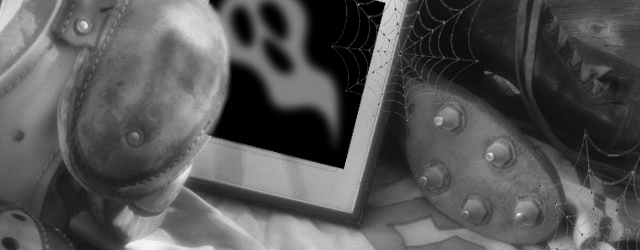The Hidden Lessons: Storage Wars
“Yuuuupppp!!”
In this, the first article of the series, we’ll examine Storage Wars. This show revolves around several cast members viewing abandoned storage lockers without being able to enter them and interact with the contents inside. They then bid against each other in an effort to win the mysterious contents of the locker.
If there is a more perfect analogy to dynasty auctions drafts than this, I can’t think of it. In these drafts, owners bid against each other on players they’ve gotten a good look at in the past, but aren’t completely sure what they are getting into if they’re the winning bid. Just like the show, you’ve got basically four kinds of bidders:
1.) Very aggressive bidders
2.) The antagonists
3.) The value player bidders
4.) Conservative bidders
How these bidders interact with each other on the show can provide us with a great tool for identifying what type of bidders we’re bidding against in our dynasty auction drafts, as well as successful tactics for dealing with each of these types of individuals.
Let’s start with the first kind of bidder – the very aggressive bidder. On Storage Wars, the cast member who fits this mold is named David Hester. Hester is basically the villain of the show. Very cocky and verbose, he tries to bulldoze the other bidders with his bankroll. Hester constantly tries to make shows of power and intimidate other bidders by quickly driving up the price of units he is interested in. If you’ve ever been in a dynasty auction you know the type – this is the owner who bids up studs to levels that don’t make logical sense to anyone other than themselves. These bidders tend to anger those around them by doing this with one or two select players at every position. Usually by the end of the first or second session, these owners are completely tapped out on cap space and aren’t a factor until the very last rounds when they compile the rest of their team.
While a team using this strategy has one or two studs at every position, the rest of their team is below average as they employ an “all or nothing” approach to their team. These teams are generally top-heavy and very susceptible to injuries that could end their season. That’s not to say the players themselves are injury prone, but if one or more of these players do fall to an injury, the aggressive bidder’s team has no possible way to recover.
In order to counter the very aggressive bidder, you must be willing to sacrifice any hope of getting some stud players. Adjust your game plan to focus on value opportunities for other studs or above average players. Chime in every once in a while to keep the price moving upwards if possible. The sooner this bidder is out of the running, the sooner you can get down to business. You will have allies in this endeavor, especially the next bidder we’ll examine.
The second kind of bidder you always see in dynasty leagues that is represented as a cast member on Storage Wars is the antagonist. This bidder on Storage Wars who fits the bill is Jarrod Schulz and he has an ongoing feud with Hester. Jarrod’s goal on the show seems to be keeping Hester from winning any auctions. If that fails, he wants to make sure Hester has to pay a substantial amount in order to win.
In every auction, there exists at least one antagonist – a bidder who isn’t particularly interested in some of the top players, but is bound and determined to make sure the very aggressive bidder has to pay through the nose in order to obtain the player in question. The antagonist views himself as standing up for the league or the “small guy” against a bidder who thinks the rules don’t apply to him. The strategy is sound, but is usually overdone. When overdone, the antagonist can have their strategy blow up in their face when everyone else realizes what’s happening and leaves the antagonist holding the proverbial bag when they stop bidding.
The antagonist will likely end up with several good to elite players in spite of themselves, but these are rarely the players the antagonist was targeting prior to the draft and they will inevitably be forced to try to “wheel and deal” after the auction. These bidders are usually the second highest class of spenders in a draft and need to be identified very early. If identified early enough, you can usually counter and neutralize them by acting interested in a player and bidding aggressively. The antagonist will usually pick up on this and dance with you for a while. It’s a dangerous dance, but work the price up to a value that is slightly above fair market price and abruptly stop bidding. Essentially you antagonize the antagonist. Provided you’re able to do this one or two times, you should be able to effectively remove the antagonist from future bids. When this bidder is taken out of the equation, the next type of bidder starts his run.
With “tweedle-dee” and “tweedle-dum” out of the way, the next bidder who steps up to the plate is the value bidder. This bidder usually misses out on the top of the line studs, but jumps in early enough to snag some borderline studs and above average players. This results in a roster of mostly “good” players.
In Storage Wars, this bidder is named Darrell Sheets and he has the nickname of “The Gambler.” I’m not entirely sure where that nickname comes from because the two bidders we’ve talked about prior to this one take more and larger risks. However, this bidder will likely put together a good team that will likely do well enough to make the playoffs due to the strength the bidder collects, coupled with the depth he or she has compiled.
This bidder tries very hard not to overspend on any one player and will usually drop out of an auction on specific players if pushed hard enough, just as Darrell goes home empty handed on a regular basis. The depth this bidder compiles will usually produce at least one gem, just as this bidder on Storage Wars always seems to find at least one big ticket item hidden away from view. In order to counter this type of bidder, you must bid hard for any specific player you are attempting to get in order to push this bidder out of the running early. Identify mid-level players you have no interest in and gently bid these players up en masse to slowly chip away at this bidder’s cap space. Be very careful not to bid too aggressively or this bidder is liable to remove themselves from contention on those players.
This, of course, leaves the last bidder who rounds out our merry group, the conservative bidder. This bidder tends to clean up the scraps near the end and rarely ends up with a top ten player in the draft. They are content to allow the auction to proceed around them without much engaging. On Storage Wars, this bidder is cast member Barry Weiss.
Despite his flashy outer appearance and jovial personality, Barry usually picks up the lower-end lockers and bows out of the bidding early and often. He is content to take in the atmosphere, but doesn’t dig down deep and fight tooth and nail for any locker he sees. Barry, more often than not, like his conservative counterparts in dynasty auction drafts, dwells near the bottom in terms of profit – he generally takes a loss or barely breaks even. Every once in a while he’ll luck out and pull a rabbit out of his hat with a big find. However, these are few and far between and sometimes only appear valuable until closer inspection, much like the one week wonders the conservative dynasty auction bidders uncover every once in a while.
The conservative bidder usually competes at the end of the draft with the very aggressive bidder who is suffering from a depleted salary cap. There isn’t much you can do, or even need to do, in order to counter a conservative bidder. The good thing about these bidders is they do the work for you by their timid manner and generally just get out of the way.
Every episode of Storage Wars is entertaining and gives you a great insight into how to maneuver your dynasty fantasy draft. You’ll definitely find yourself cheering for one character more regularly than you do others – usually it’s this bidder’s style you most closely resemble. Once you’ve singled out your counterpart in the show, try to make mental notes about how this cast member both succeeds and fails at what they do. Also observe how they interact with the other cast members for tips on how you too can do the same. Please ignore the prices the bidders themselves place on items as they are usually overinflated. Instead, listen to what the experts they visit value those items at – this will be your key indicator of success and failure.
Personally, I find myself split between the antagonist (Jarrod) and the value bidder (Darrell). I hate it when bidders try to bulldoze the league and have no problem bidding those people up in order to remove them from the rest of the auction I care about. However, I try to keep my emotions in check and back off every once in a while in order to assess what values I can find while everyone else is focused elsewhere.
It’s always great to see a very aggressive bidder sitting silent after they realize they severely overpaid for their team. I know some people find the tactic of bidding others up “cheap” or “dishonest,” but I feel it is a very essential part of the auction format and serves as a counterweight to those who have no regard for (or are reckless with) their salary cap space and who drive player prices up league-wide. If you don’t care about your salary cap space, then why should I? Sure, I may get burned now and then, but I can recover from that, can you?
Look for my new article in this series as I show you how the show Pawn Stars can teach us a little about trade negotiations.



































































